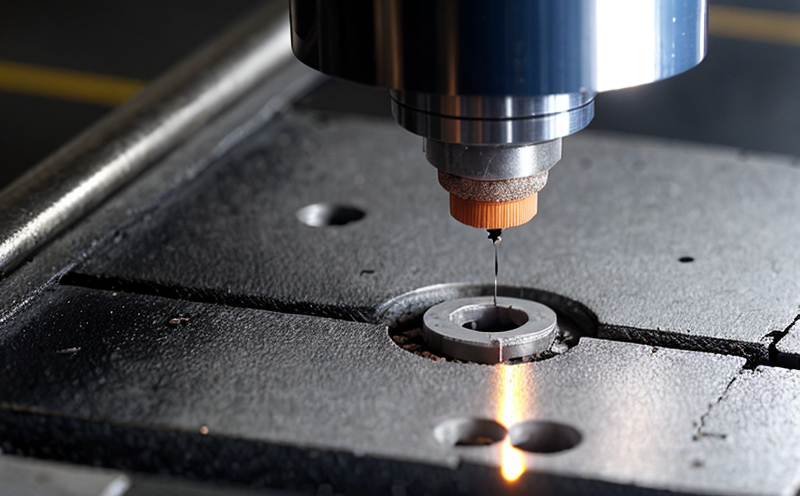JEDEC JESD22-A143 Thermal Impedance Failure Testing
The JEDEC JESD22-A143 thermal impedance failure test is a critical procedure for semiconductor and microchip manufacturers. This method evaluates the thermal performance of integrated circuits (ICs) by measuring their thermal resistance to ensure they meet reliability standards under specified conditions. The primary goal is to identify potential failures that could arise from inadequate heat dissipation, which can lead to premature device failure or performance degradation.
The test follows a standardized procedure detailed in the JEDEC JESD22-A143 document. This includes specific steps for specimen preparation and environmental setup. Specimens are typically placed on a thermal stage with controlled ambient conditions, such as temperature and humidity, before being subjected to heat stress. The test involves monitoring the temperature rise across the IC under steady-state current or power dissipation.
The procedure requires precise measurement of thermal resistance (Rth) between the external junction and the case or heatsink. This is achieved using a combination of thermocouples, thermal probes, and data acquisition systems capable of capturing millikelvin temperature changes accurately. The test can be conducted with different power levels to simulate real-world operating conditions, ensuring that the ICs perform reliably under stress.
The JEDEC JESD22-A143 test is essential for quality assurance processes in semiconductor manufacturing and design. It helps manufacturers identify weak points in their products early in the development cycle, preventing costly recalls and reputational damage. By adhering to this standard, companies can demonstrate compliance with industry best practices and regulatory requirements.
Failure analysis using JESD22-A143 is particularly important for complex ICs where thermal management is critical. The test can reveal issues such as poor thermal design, inadequate materials selection, or manufacturing defects that could lead to early failures. This information is invaluable for R&D teams aiming to improve product reliability and extend the lifespan of their offerings.
In addition to identifying potential failure modes, the JESD22-A143 test can also assist in optimizing thermal design. By understanding how different materials or packaging configurations affect heat dissipation, engineers can make informed decisions that enhance overall performance. This knowledge is crucial for maintaining competitive advantage in a rapidly evolving market.
The standardized nature of JESD22-A143 ensures consistency across various manufacturers and test labs, facilitating easier comparison of results and broader acceptance within the industry. Compliance with this standard also enhances trust between suppliers and customers, reducing the risk of supply chain disruptions due to non-compliant products.
In summary, JEDEC JESD22-A143 thermal impedance failure testing is a vital tool for ensuring semiconductor reliability. It provides valuable insights into potential failure modes and helps manufacturers optimize their designs for better performance and longevity. By adhering to this standard, companies can meet regulatory requirements while enhancing product quality and customer satisfaction.
Benefits
Early detection of thermal issues leading to potential failures
Optimization of thermal design for better performance and longevity
Enhanced product reliability, meeting industry standards and regulations
Informed decision-making in R&D processes
Increased trust between suppliers and customers
Reduction of supply chain risks due to non-compliant products
Customer Impact and Satisfaction
The JEDEC JESD22-A143 thermal impedance failure test plays a crucial role in enhancing customer satisfaction by ensuring product reliability. By adhering to this standard, manufacturers can provide high-quality products that meet or exceed industry expectations. This not only builds trust with customers but also fosters long-term relationships based on mutual confidence and quality assurance.
Customers benefit from products that are less prone to failure, leading to increased customer satisfaction and loyalty. The ability to demonstrate compliance with international standards like JEDEC JESD22-A143 adds value to the product offering, making it more attractive in competitive markets. Ultimately, this contributes to higher sales and broader market penetration.
Competitive Advantage and Market Impact
The JEDEC JESD22-A143 thermal impedance failure test provides a significant competitive advantage by ensuring that products meet the highest reliability standards. This not only differentiates companies in the market but also enhances their reputation as leaders in quality and innovation.
By identifying potential failures early, manufacturers can address issues before they become critical problems, reducing costs associated with recalls and warranty claims. This proactive approach to quality control is particularly valuable in a highly competitive industry where product reliability is key to customer satisfaction and retention.
The market impact of this test extends beyond individual companies, contributing to the overall advancement of semiconductor technology. By setting high standards for thermal performance, JESD22-A143 helps drive innovation in materials science, design optimization, and manufacturing processes. This collective effort leads to more reliable and efficient products, benefiting both manufacturers and end-users.





